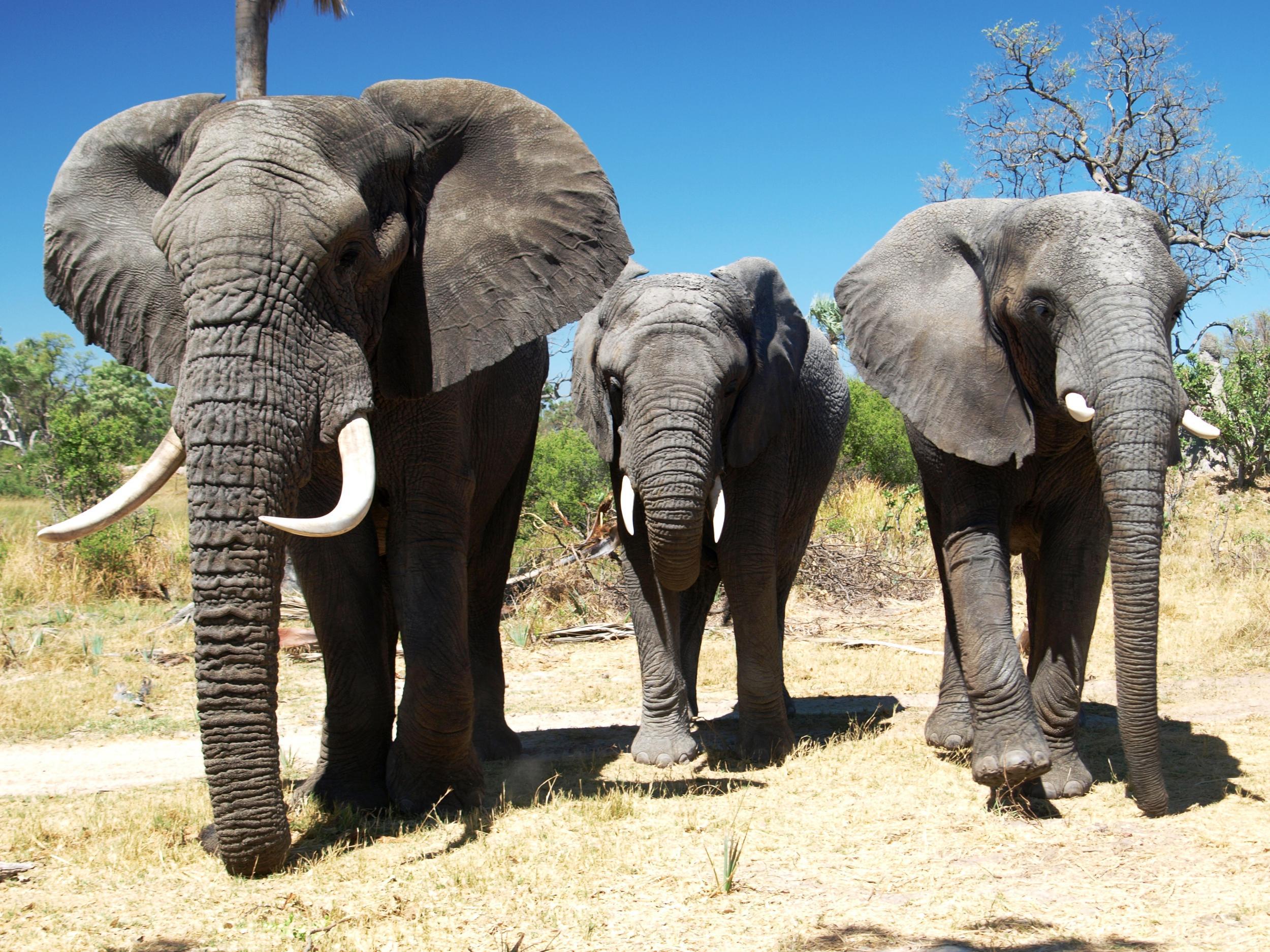Elephant populations in ‘deeply disturbing’ decline on African savannah
‘We share a collective responsibility to take action and we must all work to ensure the preservation of this iconic species’

A major survey of elephants on the African savannah has found their population fell by 30 per cent in just seven years in a “deeply disturbing” sign of the devastating effect of poaching on the iconic species.
The Great Elephant Census (GEC) counted more than 350,000 animals in the 18 countries surveyed.
Almost all of them – 84 per cent – were in legally protected areas, but the researchers discovered large numbers of carcasses inside the reserves.
Philanthropist Paul Allen, the co-founder of Microsoft with Bill Gates, funded the census, which he described as “an extraordinary collaboration across borders, cultures and jurisdictions”.
“We completed a successful survey of massive scale, and what we learned is deeply disturbing,” he said.
“Armed with this knowledge of dramatically declining elephant populations, we share a collective responsibility to take action and we must all work to ensure the preservation of this iconic species.”
The researchers counted 352,271 elephants in total, estimated that this represented at least 93 per cent of the total.
They found that the numbers had fallen by 144,000 elephants – or 30 per cent – between 2007 and 2014.
The current rate of decline was eight per cent, which the researchers said was “primarily due to poaching”.
“The rate of decline accelerated from 2007 to 2014,” they added in a statement on the GEC website.
The census saw 286 staff fly some 463,000km in 81 airplanes and also relied on the “collaboration and critical contributions” of wildlife department staff in the 18 countries, scientists, charities and other experts.
Mike Chase, the survey’s principal investigator and founder of Elephants Without Borders, said: “If we can’t save the African elephant, what is the hope of conserving the rest of Africa’s wildlife?”
However he added: “I am hopeful that, with the right tools, research, conservation efforts and political will, we can help conserve elephants for decades to come.”
Heather Sohl, chief adviser on wildlife at WWF-UK, called for a renewed effect to deal with poaching.
“This census has confirmed what we all feared – that elephant numbers are continuing to decline rapidly in many parts of Africa as a result of poaching and human impact on their habitat and survival of some savannah elephant populations is threatened,” she said.
“The illegal ivory trade is an international problem and it urgently needs global implementation of the right solutions.
“Critically, we also need global efforts towards significantly reducing the demand that drives the illegal ivory trade.”
But she also said work needed to be done to help elephants and humans to live together.
“There is also an urgent need to find innovative solutions to reduce habitat loss and mitigate human-wildlife conflict, including working closely with communities to ensure that they can thrive alongside elephants,” Ms Sohl said.
“Southern African countries have shown that it is possible to successfully conserve sizeable elephant populations through a combination of political will, effective anti-poaching efforts and cooperation with communities.
“We strive for a world where people and nature thrive. These statistics are a worrying reminder of the challenges faced in achieving this and securing a positive future for one of the world’s most iconic species – the African elephant.”
Join our commenting forum
Join thought-provoking conversations, follow other Independent readers and see their replies
Comments
Bookmark popover
Removed from bookmarks